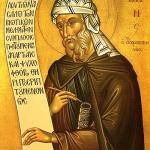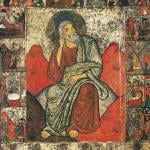Hagatna, Guam, Aug 12, 2016 / 12:01 am (CNA/EWTN News).- A priest in Guam has admitted to abusing around 20 children, a revelation that comes amid an ongoing investigation into abuse accusations surrounding the local archbishop. Accusations against Fr. Louis Brouillard, 95, were made during a public hearing last week to lift Guam’s statute of limitations on child abuse. The accusations were raised by a man who lives in Hawaii and said he was sent to a Catholic school in Guam, where he was abused twice, including by Fr. Brouillard in the 1950s. The priest served in Guam between the 1940s-1970s, during which he taught at San Vicente and Father Duenas Memorial Catholic schools. According to The Associated Press, after the accusations were made, Fr. Brouillard admitted in an interview to having abused “a couple of boys” while teaching at the schools. Fr. Brouillard could not come up with an exact number of children he had abused, but said it was “maybe 20.” He said that he had confessed his sins to other priests on the island, and was told to “do better” and perform regular penance, such as praying for the victims. “At that time, when I was that age, I got the impression that kids liked it, so I went ahead. But now of course, I know it's wrong and I'm paying for it,” he said, according to The Associated Press. The hearing in which the accusations were made took place at the Guam Legislature and aims to enact Bill 326, which would strike down the current two-year statute of limitations for civil claims involving the sexual abuse of minors. If passed, the measure would repeal the entirety of the current law and establish that action against child abusers may be taken at any time in any court of competent jurisdiction. Brouillard’s admissions come shortly after Pope Francis appointed Archbishop Savio Hon Tai-Fai, secretary of the Congregation for the Evangelization of Peoples, as apostolic administrator “sede plena” of the Archdiocese of Agaña, which serves Catholics in Guam, a U.S. island territory in the northwestern Pacific Ocean. The appointment was made shortly after Archbishop Anthony Apuron of Agaña was accused of sexual abuse dating from the 1970s, and of failing to implement strong policies on the handling of clerical sex abuse. As apostolic administrator “sede plena,” Archbishop Hon now governs the archdiocese because its ordinary is incapable of doing so. Though Archbishop Apuron remains archbishop, he is not able to exercise his office while Archbishop Hon remains as apostolic administrator. Allegations against Archbishop Apuron surfaced in May with accusations from a former altar boy, who said that he was molested at age 12, when he spent the night at a rectory with then-Father Apuron. The alleged incident took place in the mid-1970s in Agat, a town located almost 13 miles southwest of Hagåtña, Guam's capital, when Archbishop Apuron was a parish priest. Shortly later, another allegation surfaced, also involving a former altar server who had spent the night at the rectory. Archbishop Apuron, however, has denied the allegations, calling the most recent a “malicious and calumnious accusation.” Archbishop Apuron, 70, is a native of Guam. He was ordained a priest of the Order of Friars Minor Capuchin in 1972. He was appointed an auxiliary bishop of Agaña in 1983, its apostolic administrator in 1985, and he has served as archbishop since 1986. In 2014, a California man had accused Archbishop Apuron of having molested his cousin. However, the cousin did not confirm the accusation, and no charges were filed. The Pope's decision to appoint Archbishop Hon as apostolic administrator of Agaña also falls shortly after his release of the motu proprio “As a loving mother,” which provides for the removal of bishops from office in cases where they are negligent in dealing with sex abuse cases. Read more















